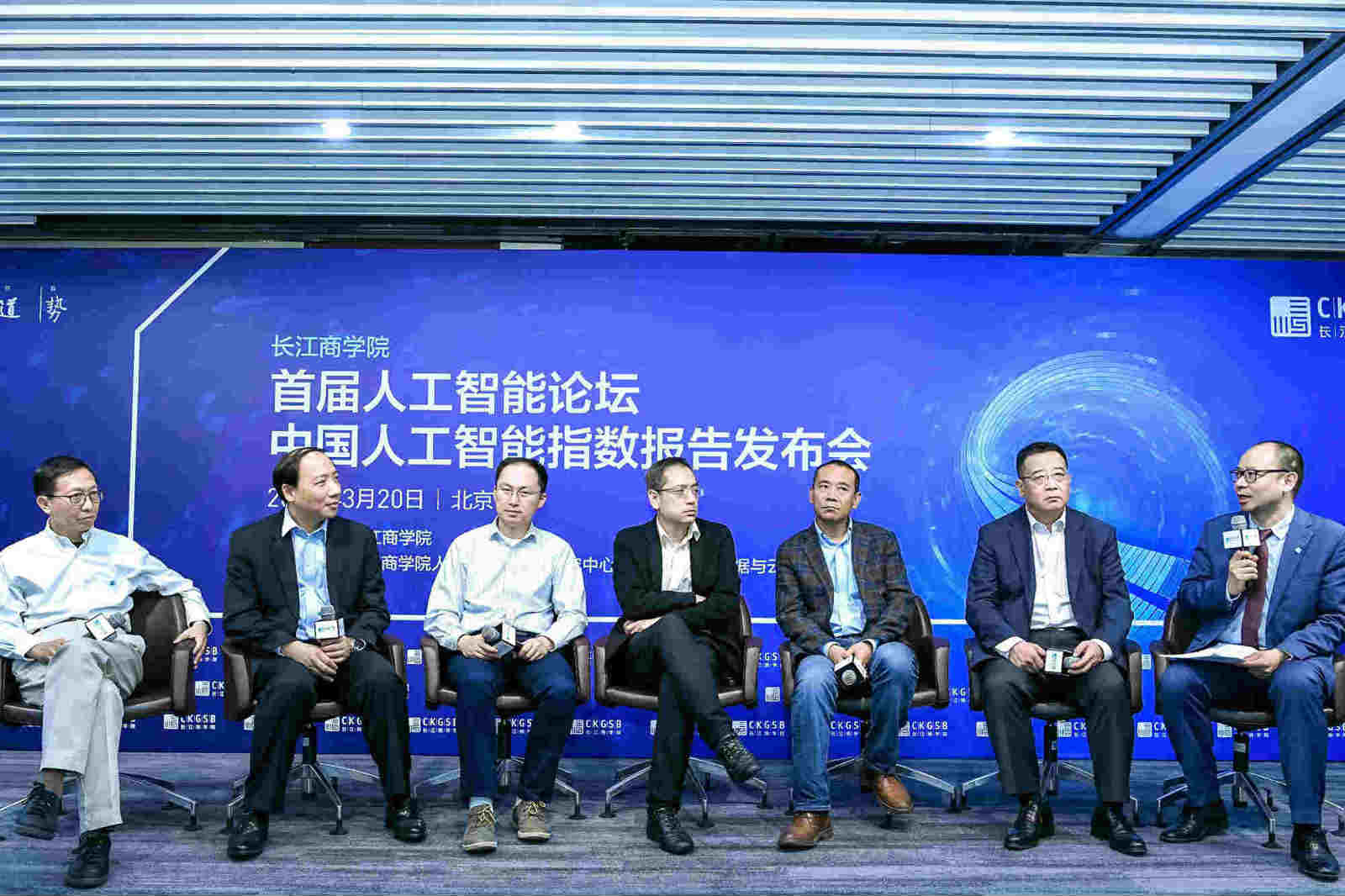


Photo courtesy to Xinhua
Speaking in fluent Chinese, Xin Xiaomeng, the world’s first female AI news anchor, could pass as a real one in many ways. The lifelike anchor launched during the 2019 Two Sessions captured many eyes and again showed China’s passion and ambition about AI technology.
In fact, the nation’s development in AI in recent years has caught wide attention and was given high credit by experts at the China AI Index 2018 conference held in Beijing on Wednesday, especially in regard to the flourishing applications of the advanced technology.
According to the Index issued at the conference, Chinese researchers started publishing more AI research papers than the US since 2016, and there has been skyrocketing growth in the number of Chinese participants at major conferences on AI globally.
Along with the emergence of 5G technology and the Internet of Things, AI, as the basic technical support, is being widely applied in Chinese people’s lives and kindling business enthusiasm across the nation.
At numerous railway stations in China, the speed of check-in has been greatly increased after the installation of facial recognition in 2017, which is 10 times faster than manual ticket checks.

Photo courtesy to CKGSB
Another prominent example of AI application is by G7 Networks, a Chinese AI technology provider in the logistic sector, which uses AI to fight the problem of drowsy truck drivers.
Through abnormal behavior detection of such things as fatigue or sudden braking, the AI technology safeguards the lives of more than 20,000 truck drivers across the nation. The trace-tracking service under its AI solutions also means the drivers can always find the fastest, cheapest, and safest routes, the company’s CEO Zhai Xuehun introduced at the conference.
China is catching up with the US, but gaps still exist in China-US AI research, especially in the fields of basic science, Cui Xiaohui, professor of Wuhan University’s big data and cloud computing laboratory told the conference.
“Chinese talents will be easily replaced by AI technology if they are simply trained for technical skills. Even for AI talents, the nation needs more researchers on the technology, while many more should set their eyes on applications. Also, the Chinese academic paper evaluation system needs further reforms so Chinese voices in the AI field can be heard on the world stage,” Xu Chenggang, a professor at Cheung Kong Graduate School of Business (CKGSB), China’s only business school with faculty governance, told People’s Daily Overseas Social Media.
At this stage, Xu noted, China’s AI industry is much younger than the US.
The Index found that about 60% of AI talents in China working in the industry have been working for less than 10 years, while over 70% of Americans working in AI industry have been working for more than 10 years.
China released a new-generation AI development plan in 2017, which outlines China’s strategy to build a domestic AI industry, which is estimated to be worth nearly $150 billion in the next few years. The nation aims to become the leading AI power by 2030.
“China’s ambition and curiosity toward AI technology is like a baby in its early days. We are looking forward to creating a promising future on the basis of the principle of objectivity and the spirit of science,” said Liu Yadong, chief editor of Science and Technology Daily.
 Fire brigade in Shanghai holds group wedding
Fire brigade in Shanghai holds group wedding Tourists enjoy ice sculptures in Datan Town, north China
Tourists enjoy ice sculptures in Datan Town, north China Sunset scenery of Dayan Pagoda in Xi'an
Sunset scenery of Dayan Pagoda in Xi'an Tourists have fun at scenic spot in Nanlong Town, NW China
Tourists have fun at scenic spot in Nanlong Town, NW China Harbin attracts tourists by making best use of ice in winter
Harbin attracts tourists by making best use of ice in winter In pics: FIS Alpine Ski Women's World Cup Slalom
In pics: FIS Alpine Ski Women's World Cup Slalom Black-necked cranes rest at reservoir in Lhunzhub County, Lhasa
Black-necked cranes rest at reservoir in Lhunzhub County, Lhasa China's FAST telescope will be available to foreign scientists in April
China's FAST telescope will be available to foreign scientists in April "She power" plays indispensable role in poverty alleviation
"She power" plays indispensable role in poverty alleviation Top 10 world news events of People's Daily in 2020
Top 10 world news events of People's Daily in 2020 Top 10 China news events of People's Daily in 2020
Top 10 China news events of People's Daily in 2020 Top 10 media buzzwords of 2020
Top 10 media buzzwords of 2020 Year-ender:10 major tourism stories of 2020
Year-ender:10 major tourism stories of 2020 No interference in Venezuelan issues
No interference in Venezuelan issues
 Biz prepares for trade spat
Biz prepares for trade spat
 Broadcasting Continent
Broadcasting Continent Australia wins Chinese CEOs as US loses
Australia wins Chinese CEOs as US loses